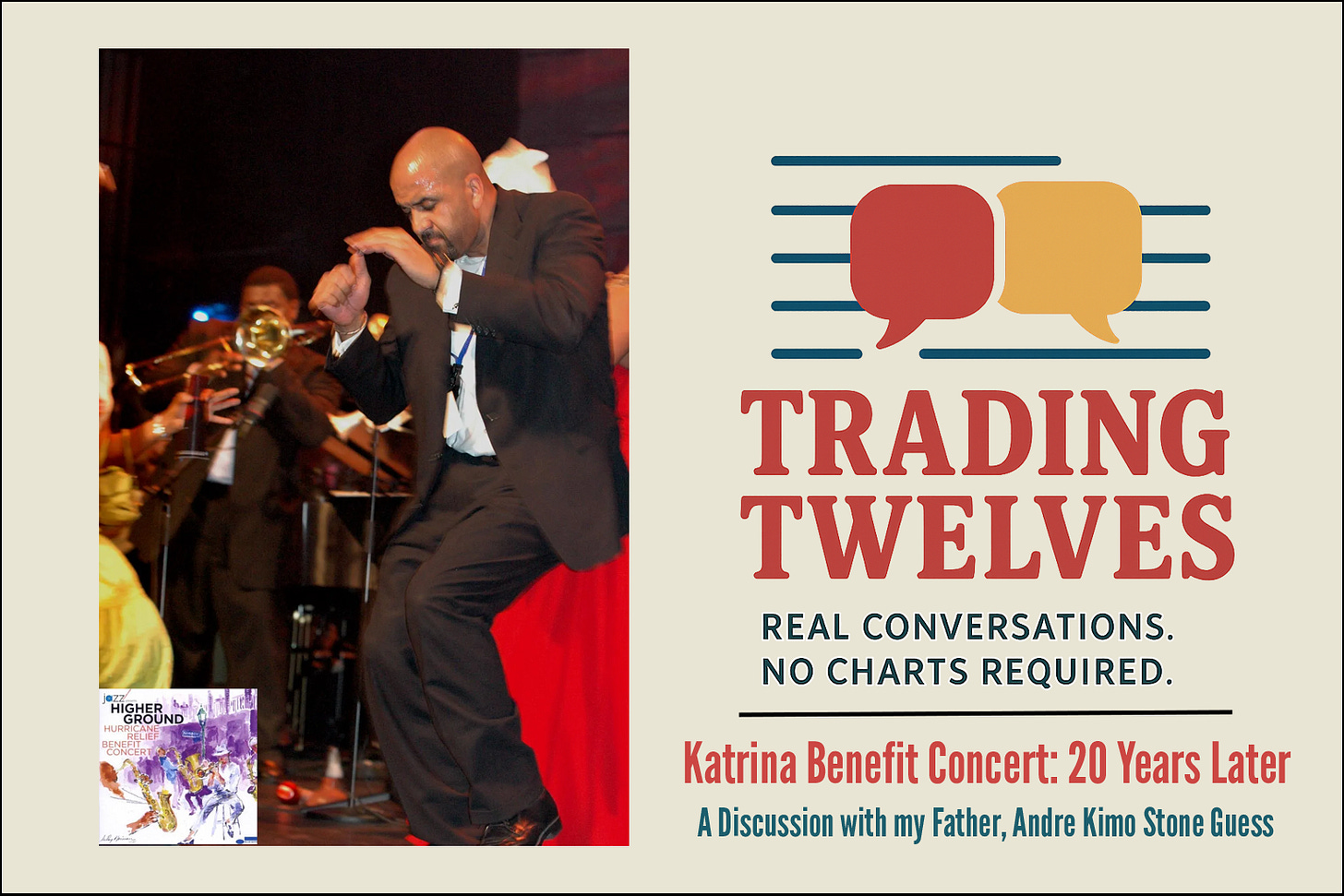Higher Ground: Remembering Jazz at Lincoln Center’s Katrina Benefit 20 Years Later
I sat down with my father Andre Kimo Stone Guess to discuss how the Higher Ground concert came together in the wake of Katrina.
On September 17, 2005, just two weeks after Hurricane Katrina struck New Orleans, Jazz at Lincoln Center staged the Higher Ground Hurricane Relief Benefit Concert in Rose Hall, the new home the organization had opened only a year earlier. The idea was pushed forward by my father, Vice President and Producer, Andre Kimo Stone Guess working with Michael …
Keep reading with a 7-day free trial
Subscribe to Wynton Kelly's Liner Notes to keep reading this post and get 7 days of free access to the full post archives.


